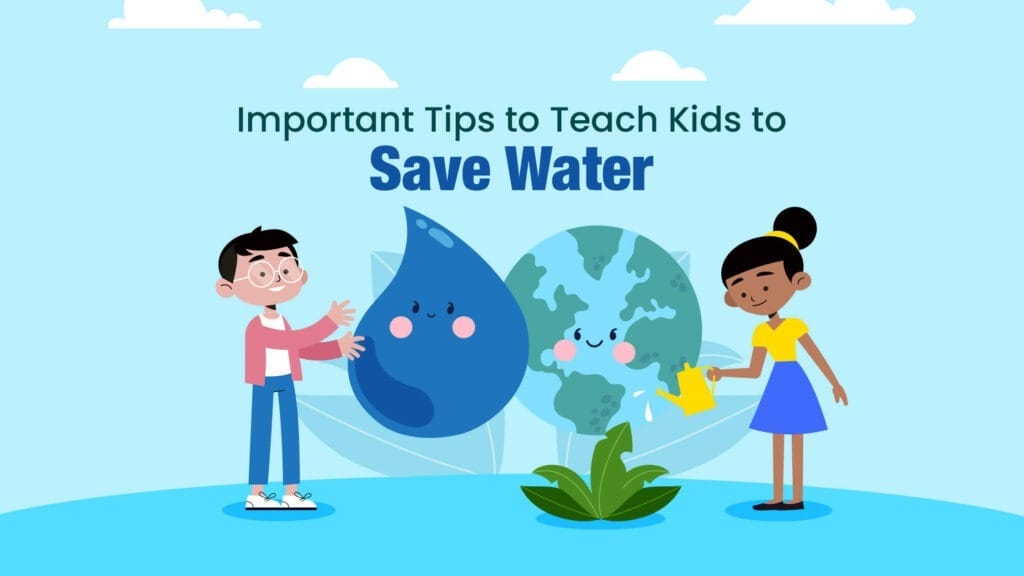IMPORTANT TIPS TO TEACH KIDS TO SAVE WATER

Important Tips to Teach Kids To Save Water
Water is a precious resource, and it’s crucial to instill the value of water conservation in our children from an early age. Here are some important tips to help you teach your children the importance of water conservation:
1) Lead by Example
Children often emulate their parents’ behavior. Set a positive example by practicing water-saving habits in your daily life. Turn off the tap while brushing your teeth, fix any leaky faucets promptly, and use a broom instead of a hose to clean driveways and sidewalks.
2) Educate About the Water Cycle
Simplify the water cycle concept for kids. Explain how water evaporates, forms clouds, and falls as rain. Emphasize that the amount of water on Earth remains constant but is distributed unevenly, making it essential to use it wisely.
3) Make it Fun
Learning through fun activities can be highly effective. Engage children in water-themed games, experiments, and projects. For instance, you can demonstrate the concept of water scarcity by giving them a limited amount of water for a day and encouraging them to use it wisely.
4) Discuss the Impact
Explain how water scarcity affects people, animals, and the environment. Help children understand that wasting water can lead to droughts, water pollution, and harm to aquatic ecosystems.
5) Involve Them in Conservation Practices
Encourage children to actively participate in water-saving practices at home. Assign them tasks like checking for leaks, collecting rainwater for plants, and using a bucket and sponge for car washing instead of a hose.
6) Teach About Water-Efficient Appliances
Introduce children to water-efficient appliances like low-flow toilets and water-saving showerheads. Explain how these devices help reduce water consumption without compromising comfort.
7) Create a Water-Saving Garden
If you have a garden, involve your kids in planning a water-efficient garden. Teach them about drought-resistant plants and the importance of mulching to retain soil moisture.
8) Show the Value of Every Drop
Highlight that every drop of water counts. Illustrate this by discussing the water required for daily activities like cooking, drinking, and bathing. This helps children grasp the finite nature of water resources.
9) Field Trips and Nature Walks
Organize field trips to water treatment plants, wetlands, or nature reserves. These visits provide valuable insights into water conservation efforts and the importance of preserving natural habitats.
10) Reinforce the Message
Consistency is key to instilling good habits. Remind your children regularly about the significance of water conservation, and praise their efforts when they practice it.
Conclusion
In conclusion, teaching kids to save water is not just about preserving a valuable resource; it’s about nurturing responsible and environmentally conscious individuals. At Divya Jyot CBSE School, recognized as the best CBSE school in Shilaj, we believe that teaching kids to save water is not only an educational responsibility but also a vital life skill. By incorporating the above mentioned tips into their education and daily lives, we can raise a generation of children who understand the importance of water conservation and actively contribute to a sustainable future.



